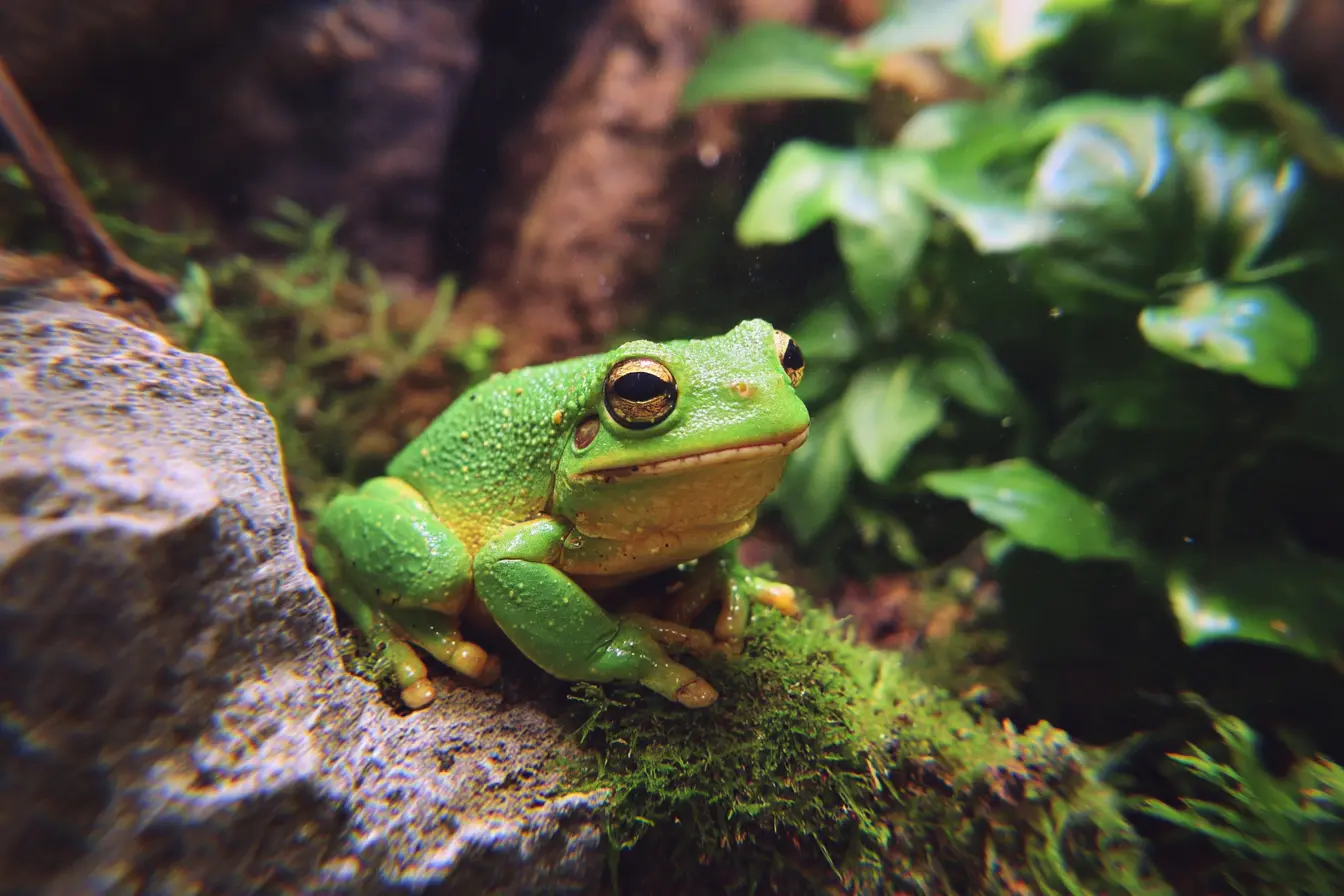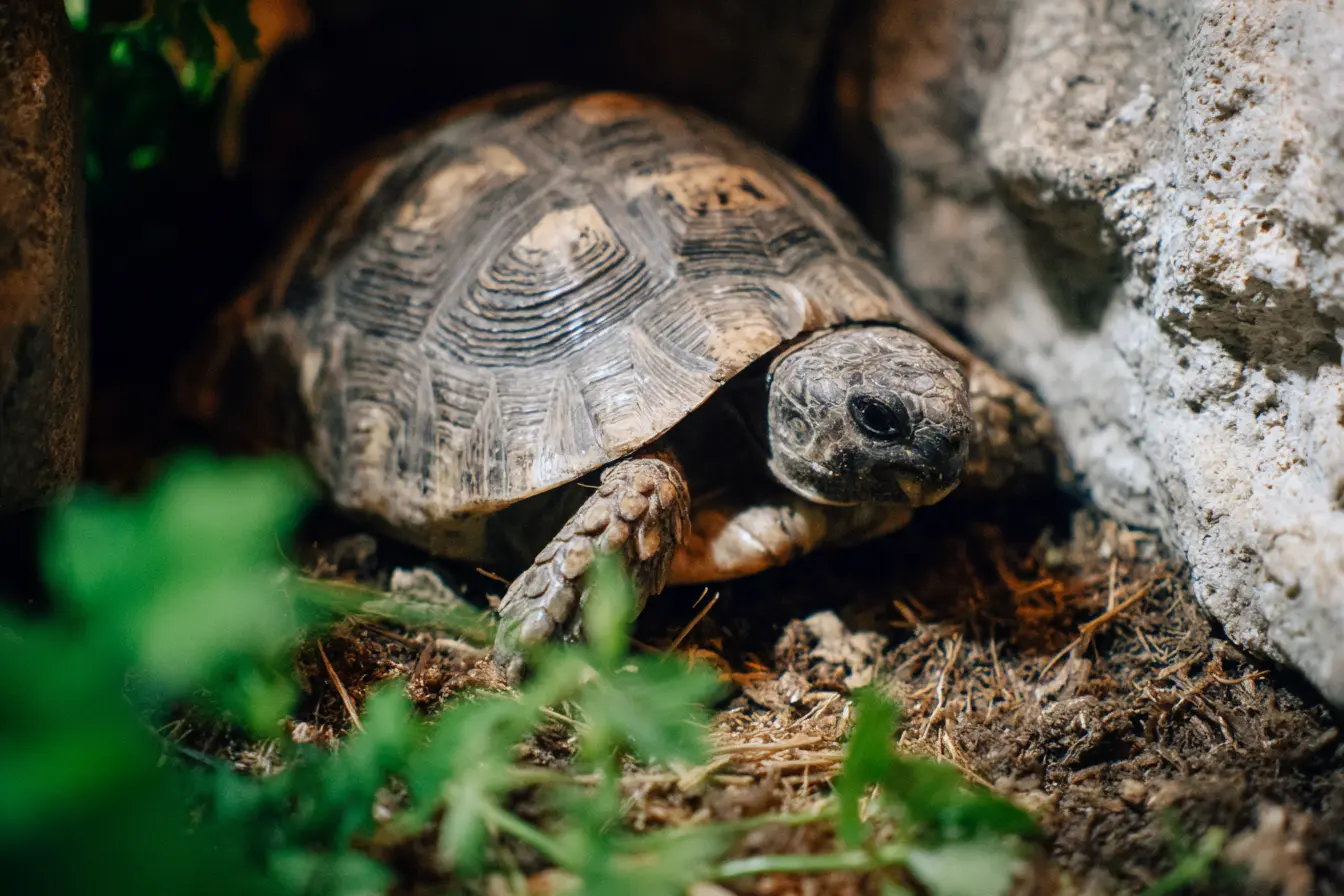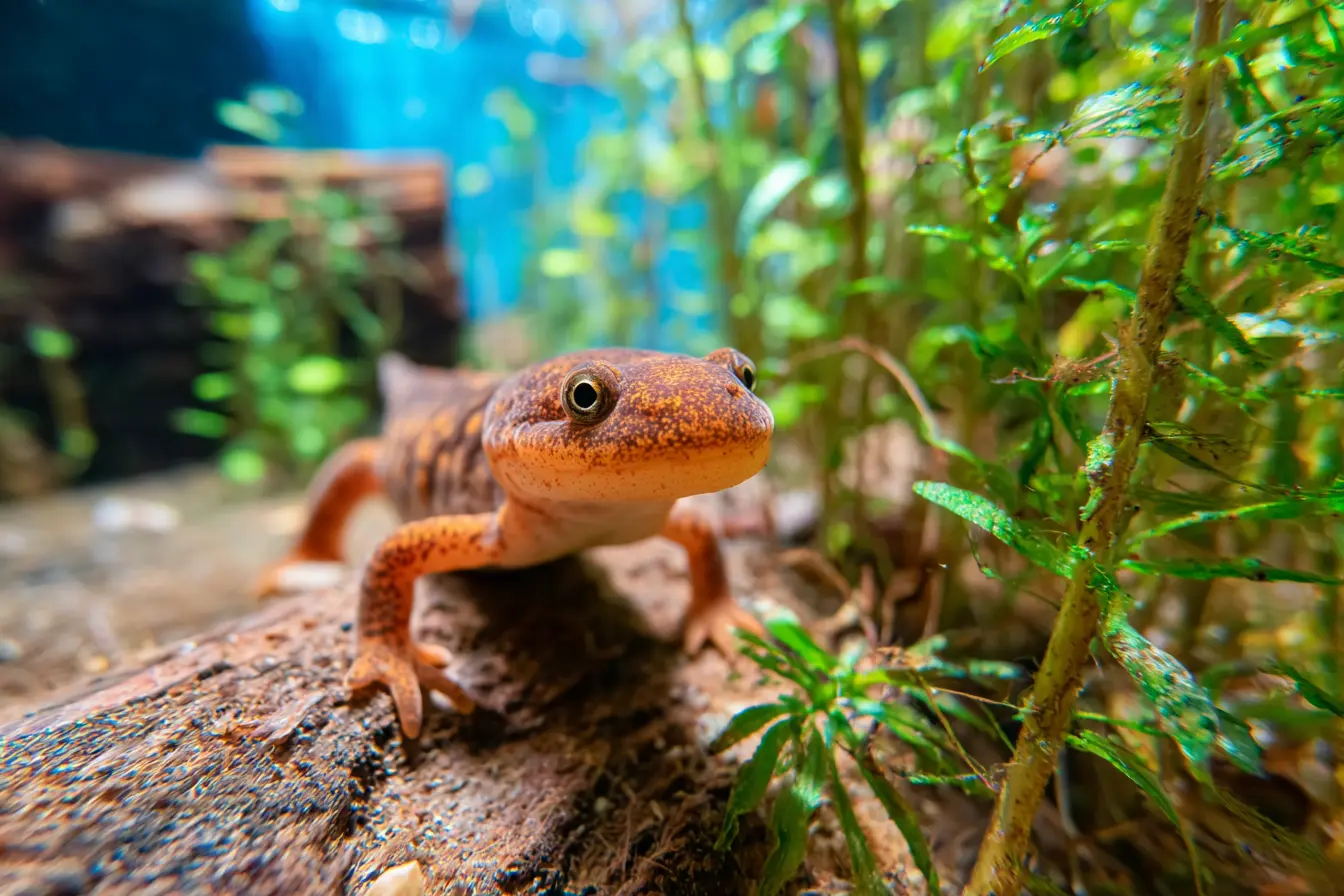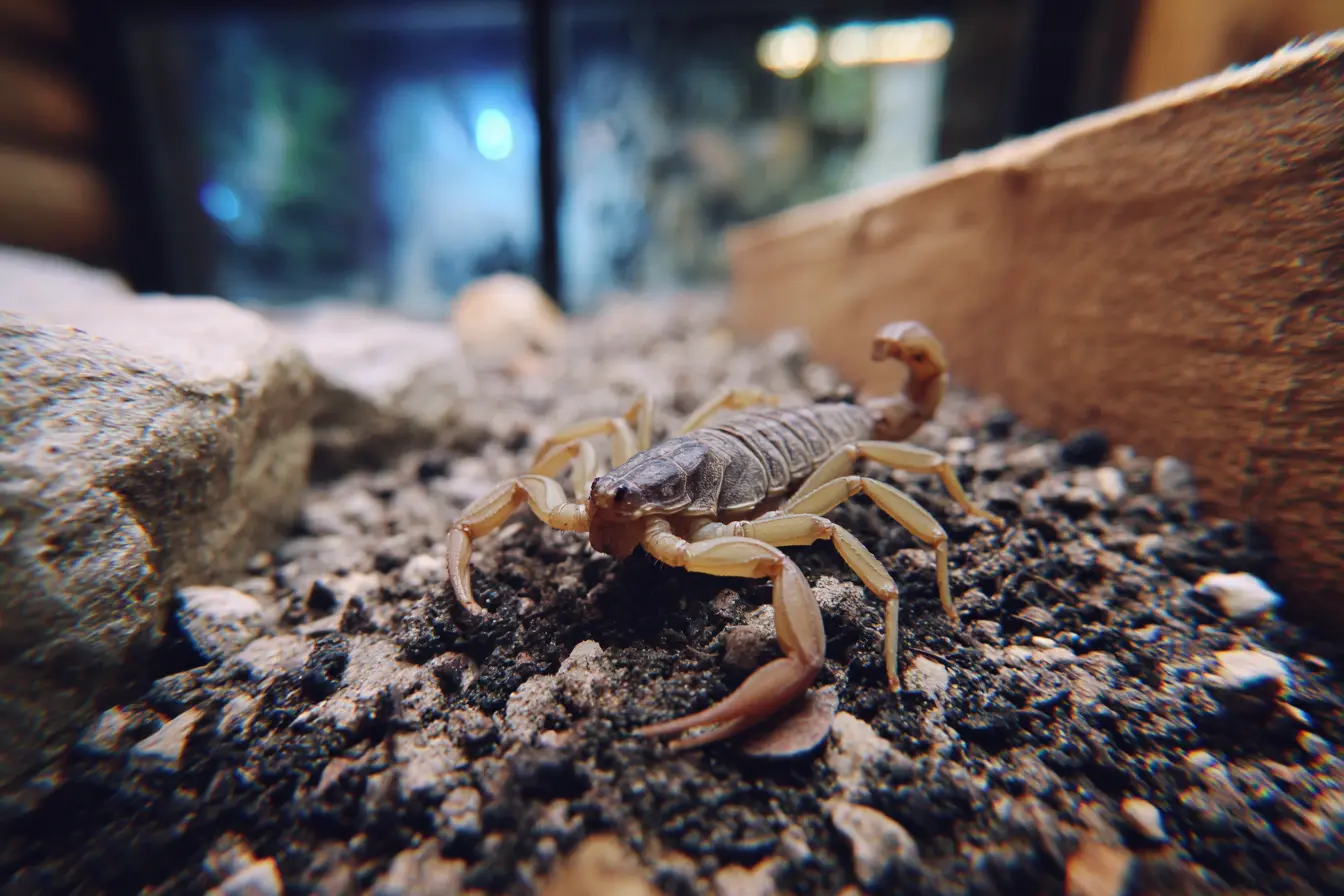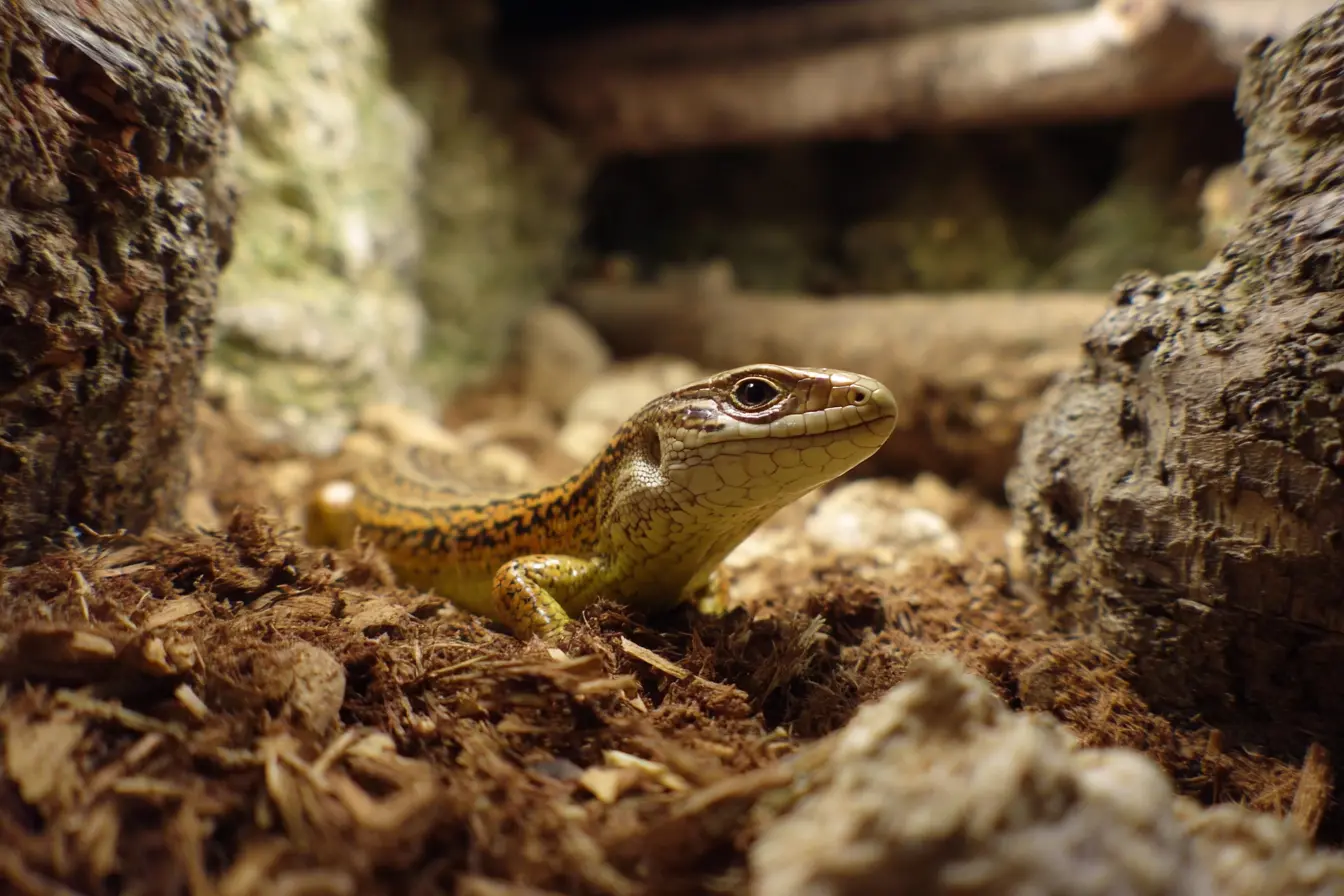
Berber Skink Care Guide: Everything New Owners Need to Know
Berber skinks (Eumeces schneideri), also known as Schneider’s skinks, are robust, ground-dwelling lizards native to North Africa, the Middle East, and parts of Asia. Known for their striking golden-yellow and brown banded patterns, they are an active and hardy species that make excellent pets for beginner and intermediate reptile keepers alike.
If you’re thinking about welcoming a Berber skink into your home, this guide covers everything you need to know—from housing and diet to health and handling.
What is a Berber Skink?
Berber skinks are medium-sized lizards that grow to about 30–40 cm in length. They have muscular bodies, short limbs, and a streamlined profile that makes them efficient burrowers. These skinks are generally diurnal (active during the day) and are known for their curious and somewhat social nature.
With proper care, Berber skinks can live up to 10–15 years in captivity. While they are tolerant of handling, they’re best appreciated as active, engaging display pets.
Sourcing and Selecting a Berber Skink
Choosing a healthy skink from a trusted source is key to a successful experience.
Where to Buy
- Reputable breeders: These offer captive-bred specimens that adapt well to home environments.
- Specialist reptile shops: Many carry Berber skinks and can provide initial care advice.
- Reptile rescues: Some skinks in need of rehoming may be available through rescue centres.
Avoid wild-caught individuals when possible—they may carry parasites and be more difficult to tame.
What to Look For
Signs of a healthy Berber skink include:
- Bright, alert eyes
- A strong, full body and intact tail
- Active behaviour and steady movements
- Clean nostrils and vent
- No signs of retained shed or injury
Housing and Enclosure Setup
Berber skinks are terrestrial and need floor space more than vertical climbing area.
Enclosure Size
The recommended enclosure for one adult Berber skink is at least 90 cm (L) x 45 cm (W) x 45 cm (H), though larger enclosures are preferable. Glass vivariums with secure lids work well, allowing for visibility and ventilation.
Substrate
Berber skinks are natural diggers. Provide a deep, loose substrate such as:
- Coconut fibre
- Soil-sand mix (70:30)
Reptile-safe topsoil
- This allows for burrowing and natural behaviours. Spot-clean regularly and replace substrate monthly.
Heating and Lighting
As ectotherms, Berber skinks depend on external temperatures to regulate their body functions.
- Basking spot: 32–35°C
- Cool end: 22–25°C
- Night-time: No lower than 18°C
Use a basking bulb on one side of the enclosure to create a thermal gradient. A 10–12% UVB tube is essential for vitamin D3 synthesis and calcium metabolism. Replace UVB bulbs every 6–12 months.
Humidity and Water
Although adapted to arid climates, Berber skinks benefit from a humidity range of 30–50%. Mist lightly if needed, especially during shedding periods. Provide a shallow water dish with clean water and change it daily.
Diet and Nutrition
Berber skinks are omnivores with a strong preference for protein. A varied diet is essential for their health.
Staple Foods
- Crickets
- Dubia roaches
- Mealworms
- Earthworms
- Finely chopped greens (collards, dandelion, mustard greens)
Occasional Treats
- Scrambled or boiled egg (plain)
- Waxworms (high in fat)
- Soft fruits like mango or blueberries (in moderation)
Feed juveniles daily and adults every 2–3 days. Remove uneaten food promptly to prevent spoilage.
Supplementation
To prevent nutritional deficiencies, dust insects with:
- Calcium without D3 at most feedings
- Calcium with D3 once or twice a week
- Multivitamin supplement once a week
Gut-loading feeder insects enhances their nutritional value.
Handling and Behaviour
Berber skinks are generally docile and can become accustomed to gentle handling over time.
Tips for Handling
- Begin slowly with short sessions and allow the skink to approach you
- Support their full body and avoid grabbing from above
- Handle close to the ground to prevent injury from falls
- Wash your hands before and after contact
Each skink has its own personality—some tolerate handling well, while others remain more reserved.
Common Health Issues
With appropriate care, Berber skinks are relatively hardy. Still, they may encounter health problems from time to time.
Metabolic Bone Disease (MBD)
Caused by insufficient calcium or UVB exposure. Symptoms include lethargy, soft jaw bones, or limb deformities.
Respiratory Infections
Symptoms include wheezing, excess mucus, or laboured breathing. Often linked to poor ventilation or incorrect humidity.
Impaction
Caused by ingesting substrate or undigestible food. Look for lack of appetite, bloating, or constipation.
Parasites
Weight loss, lethargy, and abnormal stools may indicate internal parasites. Regular faecal exams are recommended.
Consult a reptile-savvy vet if you notice any signs of illness.
Specialist Vet Care
Regular check-ups are the best way to ensure your skink’s long-term health.
Routine Health Checks
Schedule annual visits to a reptile vet for a physical exam and faecal test.
Emergency Situations
Seek immediate veterinary help for:
- Loss of appetite lasting more than a week
- Significant weight loss
- Difficulty breathing
- Swelling, wounds, or changes in skin condition
Care and Maintenance
Consistency is key when caring for Berber skinks.
Daily Tasks
- Check temperature and humidity
- Replenish water
- Spot-clean substrate
- Observe for signs of illness or abnormal behaviour
Weekly Tasks
- Feed and gut-load insects
- Wipe down surfaces and furnishings
Monthly Tasks
- Deep-clean the enclosure
- Replace substrate
- Inspect UVB and heating elements
Final Thoughts
Berber skinks are an excellent choice for keepers looking for an active, hardy, and engaging reptile. Their relatively straightforward care requirements and bold personalities make them rewarding pets with the right setup and attention.
By following this care guide, you’ll be well on your way to creating a thriving environment for your Berber skink to live a healthy and enriched life.
Vets near you
Speciality vets
- Aquatics vet specialists
- Birds vet specialists
- Camelids vet specialists
- Cats vet specialists
- Cattle vet specialists
- Deer vet specialists
- Dogs vet specialists
- Equines vet specialists
- Exotic vet specialists
- Goats vet specialists
- Pigs vet specialists
- Poultry vet specialists
- Sheep vet specialists
- Small Mammals vet specialists
- Wild vet specialists
Vet facilities
- Accessible by public transport
- Blood testing
- Car park nearby
- Client car park
- Dentistry
- Diagnostic imaging
- Disabled public access
- Flea and worm treatments
- Microchipping
- Mobile services
- Neutering
- Open at weekends
- Out-of-hours service
- Referral interests
- Referrals only
- Street parking outside
- Toilets available
- Vaccinations
